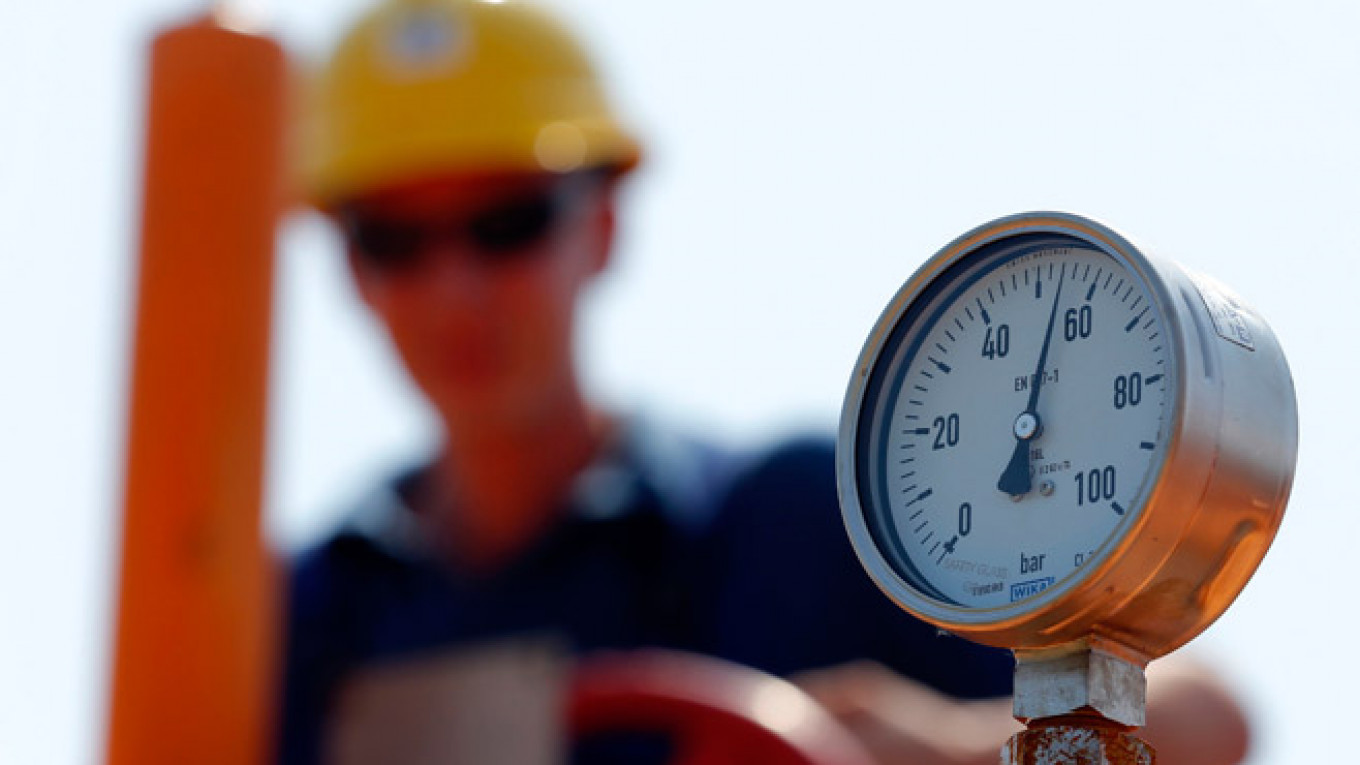The position of Russian natural gas in Central and Eastern Europe seems unshakeable: 100 percent market share in Latvia, Estonia, Lithuania and Belarus, 90 percent in Bulgaria, 80 percent in Hungary and Slovakia, and 60 percent in the Czech Republic, Poland and Ukraine. Yet these figures disguise crucial vulnerabilities. In the coming years, Russia's export volumes will remain high, even as its position in the European energy markets erodes. Often, discussion of the shale revolution's impact on Russia focuses on the prospect of American LNG displacing gas flowing through Russia's transcontinental pipelines.
Such analysis is misleading. Increasing global supplies damage Russian interests. It is important to remember that, as recently as 2005, projections favored the U.S. to become the largest net buyer of natural gas in the world. But in the years since, domestic production rose 34 percent, making the country functionally independent of offshore suppliers.
The closure of the U.S. LNG import market is forcing producers in the Middle East and Africa to look for customers elsewhere. This exerts downward pressure on prices and is making LNG from all sources more economical for European consumers.
Keen to diversify away from Russian energy, Lithuania and Poland responded by investing in ambitious and costly LNG import projects. Lithuania's facility will begin receiving cargoes in December. With a re-gasification capacity of 3 billion cubic meters per year, it can process 90 percent of national demand. Poland's terminal will begin operations in mid-2015. At 4.8 bcm, it can meet 25 percent of that country's annual gas consumption.
These competitive threats have already damaged Russia's bargaining power. In the last four years, Gazprom negotiated discounts of 10 to 20 percent with customers in Poland and Lithuania, as well as 7 to 15 percent price cuts with utilities in the Czech Republic, Slovakia and Western Europe.
These discounts were given even as the U.S. lacked any LNG export capability. But this will change in the coming years. The first export terminal in the U.S., with a capacity of 20 bcm per year, will commence operations next year. The country's eventual volumes are impossible to predict, but they are likely to be significant on a global level. As it stands, 60 bcm is on track by 2020, with an additional 330 bcm in various stages of approval.
For the foreseeable future though, Europe cannot use LNG to replace the bulk of its Russian imports. The Western portions of the continent have ample re-gasification capacity, but limited pipeline linkage to Central and Eastern Europe, the region most heavily dependent on Russia.
Nevertheless, any significant LNG activity will materially benefit Europe at Russia's expense. As gas tankers journey across oceans, global markets become more integrated, lowering price differentials among regions — giving buyers greater choice.
Thus American shale undermines Russia, with or without direct displacement. Columbia University's Center on Global Energy Policy estimates that by 2025, 93 bcm of exports would mean 11 percent lower gas expenditures for Europe and 27 percent lower gas export revenues for Russia. At 186 bcm, American LNG would reduce Europe's costs by 20 percent and slash Russia's sales by 38 percent, or $33 billion.
Aside from heightening offshore competition, shale gas imperils Russia's European position because its political rivals are attempting to harness it for their own benefit. It is considered a national security interest in Ukraine and Poland, which possess some of the largest reserves on the continent. Ukraine's basins contain 20 times that country's annual gas demand, and Poland's — about 35 times.
Russia will remain an important European energy provider because its gas is relatively economic. But Russia's ability to leverage this resource as an instrument of foreign policy is diminishing.
Wenyuan Qiu is an American energy analyst.
A Message from The Moscow Times:
Dear readers,
We are facing unprecedented challenges. Russia's Prosecutor General's Office has designated The Moscow Times as an "undesirable" organization, criminalizing our work and putting our staff at risk of prosecution. This follows our earlier unjust labeling as a "foreign agent."
These actions are direct attempts to silence independent journalism in Russia. The authorities claim our work "discredits the decisions of the Russian leadership." We see things differently: we strive to provide accurate, unbiased reporting on Russia.
We, the journalists of The Moscow Times, refuse to be silenced. But to continue our work, we need your help.
Your support, no matter how small, makes a world of difference. If you can, please support us monthly starting from just $2. It's quick to set up, and every contribution makes a significant impact.
By supporting The Moscow Times, you're defending open, independent journalism in the face of repression. Thank you for standing with us.
Remind me later.






